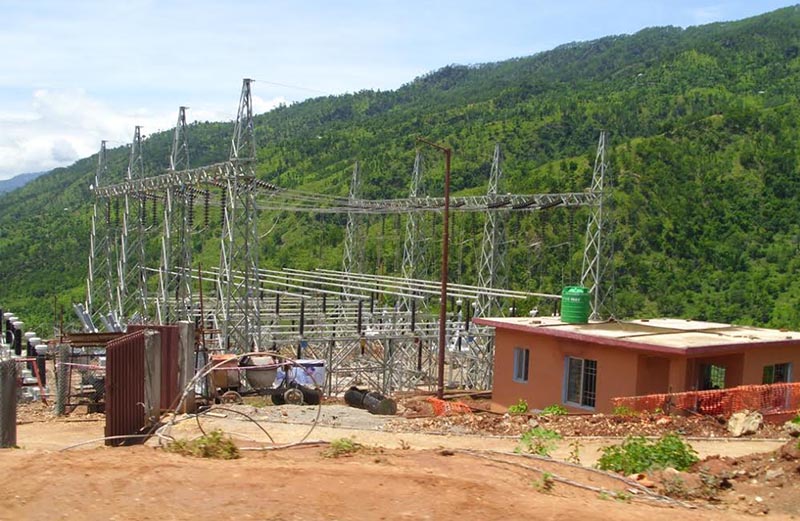Kabeli Corridor project fails to gather momentum
Phidim, January 20
Construction of 132 kV Kabeli Corridor transmission line has failed to make significant progress, thanks to protest by locals and failure of the contractor to expedite project work.
The deadline for completion of the transmission line was extended by a year after the project missed the first deadline. Although the second deadline is about to expire, only 70 per cent work has been completed till date. Work on Kabeli Corridor began some 10 years ago with a view to evacuating power generated by hydropower projects in Ilam, Taplejung, Terhathum and Panchthar.
Kabeli Corridor Chief Dipendra Raj Dwibedi said the transmission line project had failed to gather momentum due to the contractors failure to hire adequate manpower.
Indian companies Jagabar Overseas and Star JV Private Limited have been assigned the contract to construct the corridor.
In the beginning phase, dispute over compensation to landowners delayed the project work. Dwibedi said locals from Ilam’s Siddithumka staged protest demanding adequate compensation when they were about to complete work in Panchthar. He claimed that locals’ protest and failure to mobilise the manpower had delayed the construction work.
The second deadline given to the contractor to complete the project is expiring in three months. However, the chances of the project meeting the deadline are very slim.
The delay in construction of the 90-km stretch of the transmission line from Jhapa’s Damak to Panchthar’s Amarpur has adversely affected hydropower projects in hilly districts. The construction of four sub-stations was completed one year ago.
Sub-stations have been set up at Jhapa’s Damak, Ilam’s Godak, Panchthar’s Phidim, Thapatar and Amarpur. As many as 259 pylons should be erected along the 90-km transmission line. However, only 122 pylons have been erected so far.
The construction of corridor is under way at the cost of Rs 3,590,000,000. World Bank, the Government of Nepal and Nepal Electricity Authority are jointly funding construction of the transmission line. Of the 80 per cent investment of World Bank, 15 per cent is grant while 65 per cent is loan.






